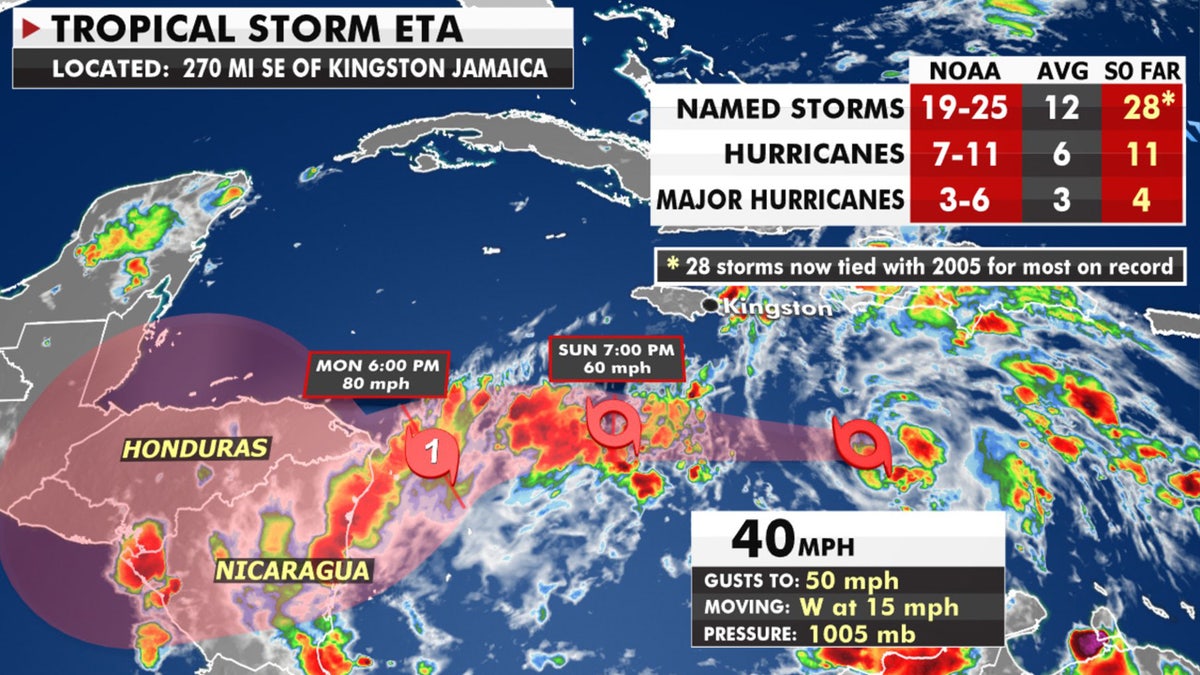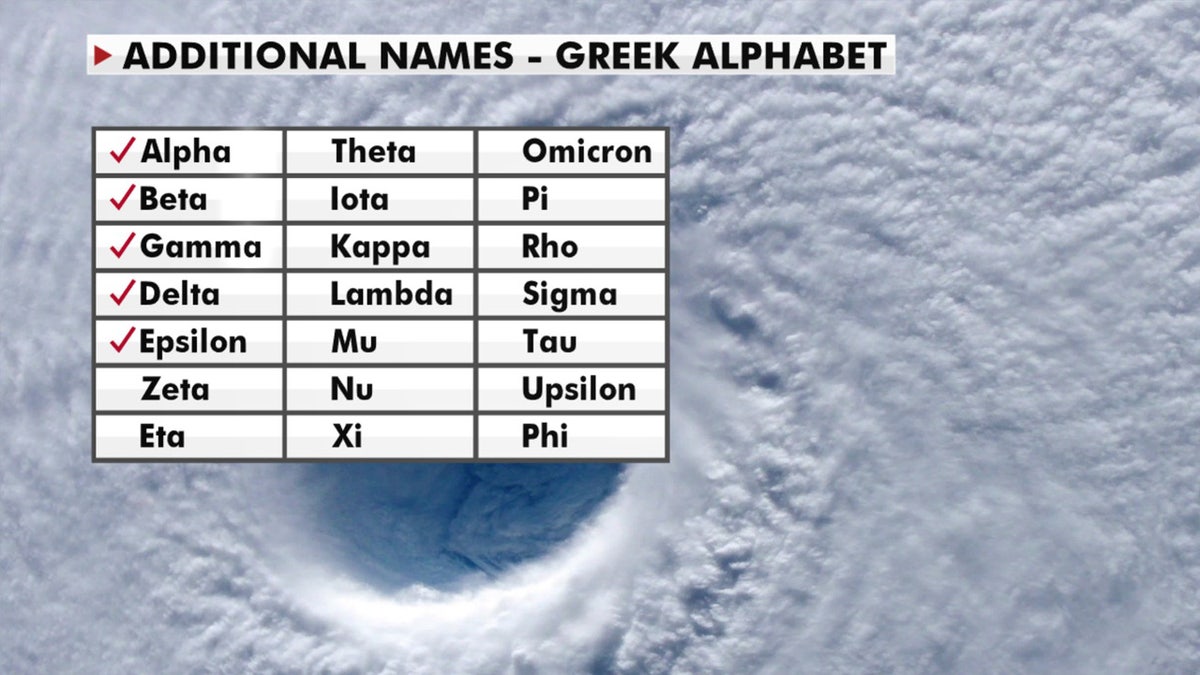A newly formed Tropical Storm, Eta, is forecast to strengthen into a hurricane by Monday and has tied the record for most the named storms ‒ 28 ‒ in a single Atlantic hurricane season.
The National Hurricane Center (NHC) said the storm is packing maximum sustained winds of 40 mph and is located about 225 miles south of Kingston, Jamaica.
"New tropical storm that formed down in the Caribbean," Fox News chief meteorologist Rick Reichmuth said on "Fox & Friends." "Likely impacting the Central America areas, Honduras and Nicaragua, as a hurricane later this week."
WEATHER-RELATED POWER OUTAGES FROM ZETA, ICE STORM IMPACT EARLY VOTING AHEAD OF ELECTION DAY
According to the latest update from the NHC, Eta is moving westward over the central Caribbean Sea at 15 mph.

Tropical Storm Eta is seen over the central Caribbean on Sunday, Nov. 1, 2020. (NOAA/GOES-East)
The storm is expected to slow down and make a turn toward the west-southwest on Monday and Tuesday. The center of the storm is forecast to be near the northeastern coasts of Nicaragua and Honduras by Tuesday morning.
Eta is forecast to strengthen into a hurricane by Monday before it makes landfall. Hurricane warnings are up for the coasts of Honduras and Nicaragua, as tropical storm conditions are possible by Monday night.

The forecast track of Tropical Storm Eta. (Fox News)
Rainfall totals could reach 15 inches in parts of Jamaica, the Cayman Islands and the southern coast of Hispaniola by Thursday evening. Isolated amounts of up to 30 inches could fall in portions of Honduras and Nicaragua, forecasters said.
"This rainfall may lead to life-threatening flash flooding and river flooding, along with landslides in areas of higher terrain," the NHC said.
After impacting Central America, Eta may still create problems by next week.
ZETA BLASTS GULF COAST, LEAVING AT LEAST 3 DEAD AND MILLIONS WITHOUT POWER ACROSS SOUTH
"We're going to watch this one, some models indicating we'll have something that's the remnants of this back up toward the U.S., so I don't think we're done with hurricane season," Reichmuth said Sunday morning.
Eta is the 28th named Atlantic storm this season, tying the 2005 record for named storms, according to Colorado State University hurricane researcher Phil Klotzbach.
However, this is the first time the Greek letter Eta is being used as a storm name because in 2005, after the season ended, meteorologists went back and determined there was a storm that should have gotten a name, but didn’t.
There is just one month left in the 2020 Atlantic hurricane season, which ends Nov. 30, but this season has broken numerous records as forecasters in September ran out of traditional names and went to the Greek alphabet for storms Alpha and Beta.
CLICK HERE FOR MORE WEATHER COVERAGE FROM FOX NEWS
NOAA forecasters had called for up to 25 named storms this season with winds of 39 mph or higher; of those, seven to 10 could become hurricanes. Among those hurricanes, three to six will be major, classified as Category 3, 4 and 5 with winds of 111 mph or higher.
That's far above an average year. Based on 1981-to-2010 data, that is 12 named storms, six hurricanes, and three major hurricanes. So far this year, there have been 28 named storms, including 11 hurricanes and, of those, four major hurricanes.

A look at the Greek alphabet names that are being used for the 2020 Atlantic hurricane season, after the hurricane center ran out of official names due to the number of storms. (Fox News)
The last time the Greek alphabet was used in the Atlantic was in 2005, the year of Hurricane Katrina. With a total of 28 storms that year, the first six letters of the Greek alphabet were used: Alpha, Beta, Gamma, Delta, Epsilon and Zeta.
CLICK HERE FOR THE FOX NEWS APP
Fox News' Adam Klotz, Janice Dean, and Brandon Noriega contributed to this report.



